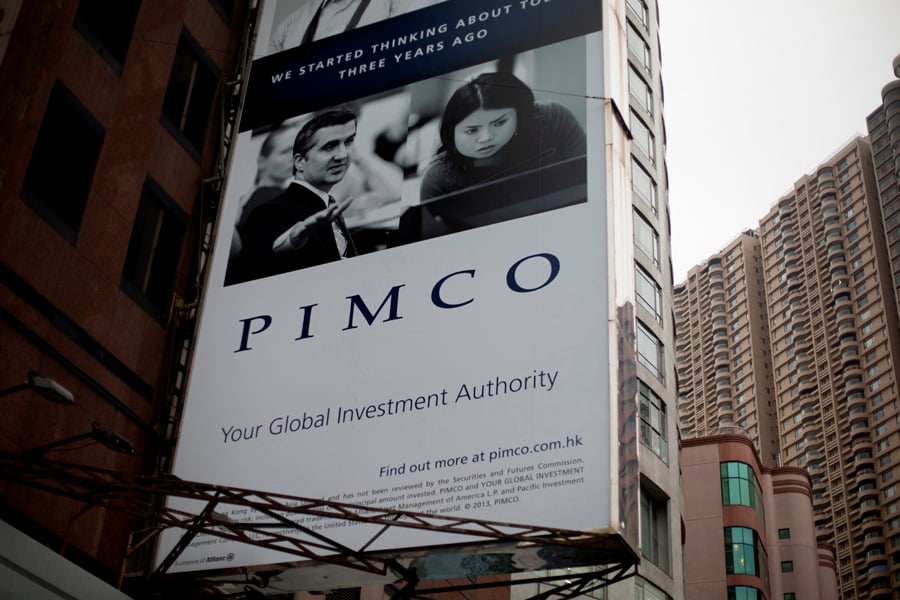Pacific Investment Management Co. said regulators are considering taking action against the firm over marking of securities in the exchange-traded fund version of its flagship Total Return Fund.
Pimco received a Wells notice from the Securities and Exchange Commission indicating the regulator’s staff is recommending civil action against the firm related to an investigation into the Pimco Total Return Active Exchange-Traded Fund, the Newport Beach, Calif.-based firm said Monday in a statement.
(More: Pimco's brand takes a hit by advisers in wake of Gross exit but still ranks among top firms)
The notice relates to the fund’s valuation of smaller positions in mortgage-backed securities not guaranteed by the government between its inception on Feb. 29, 2012, and June 30 of that year, as well as performance disclosures and related compliance policies and procedures, according to the statement.
“The Wells process provides us with our opportunity to demonstrate to the SEC staff why we believe our conduct was appropriate, in keeping with industry standards, and that no action should be taken,” Pimco said. “We will continue to engage with the SEC and we are confident that this matter will not affect our ability to serve our clients.”
The SEC sends a Wells notice to a company or an individual after its staff has determined that sufficient wrongdoing has occurred to warrant civil claims being filed.
FRESH MONEY
While the ETF has seen deposits in recent months, the Total Return mutual fund has suffered redemptions that intensified with the sudden departure of longtime manager Bill Gross last September. The regulatory notice won’t help improve flows, according to Todd Rosenbluth, director of ETF and mutual fund research at S&P Capital IQ in New York.
“The news of a SEC inquiry is unlikely to encourage investors to put fresh money back in,” he said in an e-mail. “Investors will likely want to see what, if anything, comes from the review.”
The total return ETF produced more than twice the gain of Mr. Gross’s parallel mutual fund in the first three months after it was started, helping it attract assets faster than any other actively managed ETF.
From March 1, 2012, through last week, the ETF returned 20%, compared with 12% for the mutual fund, according to data compiled by Bloomberg. This year, the ETF advanced 1.7%, versus 1.6% for the mutual fund.
EX-MANAGER’S COMPLAINT
The SEC’s probe, which started around the middle of 2014, centered on claims similar to those in a 2013 lawsuit from a former Pimco money manager. Jason Williams filed a wrongful termination claim based on his March 2012 firing, three weeks after telling the firm he had spoken with agents overseeing a U.S. bailout program and was cooperating with their inquiry, according to his lawsuit, in state court in Santa Ana, Calif.
The SEC was examining whether the total return ETF purchased small lots of bonds at discounts, then marked them up when valuing holdings to artificially boost returns, a person familiar with the probe said last September, requesting anonymity because it’s confidential.
Mr. Williams, whose complaint included a list of alleged wrongdoing at Pimco, withdrew the case three days after filing it, and court records don’t indicate why. His complaint cited “artificial manipulation of the price” of the Total Return ETF in or around March 2012, the same month he was terminated. The complaint didn’t elaborate.







